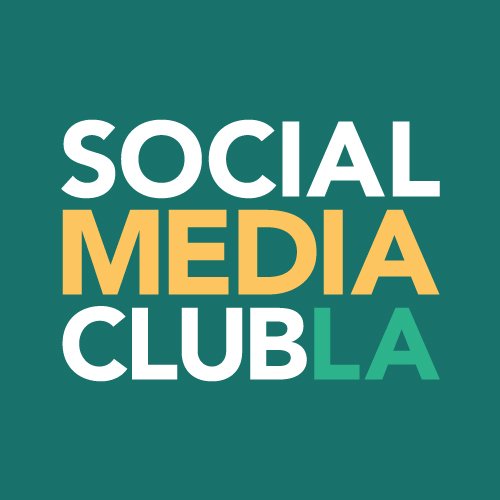Social Niceties and the Fall of Civilization Guest Post by Sam Fiorella
by Sam Fiorella - Chief Marketing Sensei of Sensei MarketingWas mom right when she preached: if you have nothing nice to say, don’t say anything at all? Does it not seem that this societal nicety has been taken to the extreme in today’s social media engagements? You know what I’m referring to: the author of a business book who Tweets a theory on the fall of the Egyptian government only to have their followers spend the better part of 3 days fawning over its wisdom (including those who thought Egypt was still ruled by the Pharaohs) instead of adding to the debate or offering an alternative point of view?I took a (admittedly unscientific) survey of the reactions to popular Social Media personality’s comments on Twitter, LinkedIn and Google+ over the past few months. The results seem to support what I knew anecdotally:
- 90% straight Re-Tweets/Likes/Shares (of which 80% were simply shares, 20% had some form of affirmative annotation)
- 9% questions and debate
- 1% “trolls” hating on the author of the comment
The social media magnifying glass that amplifies and judges our every tweet, status update and comment – and permanently saves it with the resulting reactions for posterity – has created a culture of Social-Yes-Men. The thought of damaging our personal or corporate brand has changed the way we communicate. This is fuelled by the fear of the public’s interpretation of our comments more than our confidence in the validity of the comments themselves.Are we being conditioned to be so neutral, so accommodating that that the challenging of ideas, popular personalities or norms has become taboo due to the permanency of the online archiving? Are we so fearful of being seen as incorrect or so vain as to not want to admit we were wrong that we simply RT, Like and agree to whatever the popular kids say?The FollowerazziThe spotlight is actively sought by social media celebrities and (it seems) eagerly given by the “followerazzi”. Much like their offline cousins: the Paparazzi, they follow their idols every move from the moment they wake up to the second they fall asleep; all the while documenting, interpreting and broadcasting their every statement, their every action, their every intention.Open and honest debate is required to advance theories, products and even societal norms. However, we must free ourselves from the worry of social media spin, interpretation or employer/brand retribution in order to do so honestly.I’m not suggesting that we all become “Trolls” who purposefully argue with anyone for the sake of being an instigator. These people engage in such behavior for the sake of pumping up their own self-worth or ego. There’s no value in their challenges because they choose to make personal attacks on people vs. the advancing the dialogue. They will never go away so, unfortunately, the only thing you can do is ignore them.There is place for good old-fashioned, respectful debate however. Society has not evolved by the mass acceptance or blind adulation of our leaders. It has progressed through freedom of speech and the understanding that in so doing, you’ll not be persecuted or ostracized.What does this mean for Brands? Is the fear of public debate – and the possible loss of control over the discussion – in online networks is actually creating more inwardly focused brands? In a world where praise seems to be rewarded through gamification, corporate brands have an opportunity to take the lead in this effort to reclaim free-enterprise dialogue and differentiate themselves from their competitors.
- Encourage Debate: Instead of asking for “Likes” on your Facebook page, ask for honest opinions, thoughts and recommendations on new and future products.
- Be Open: create a culture that is welcoming and receptive to criticism. One that is not afraid to look at itself in the mirror or that is perceived to be better than its customers.
- Be Humble – publicly admit mistakes and take responsibility with heartfelt apologies. Don’t be afraid to change your opinions or challenge other’s opinions; just remember to do so with respect and thanks for the exchange of information.
- Be Thankful – acknowledge those that disagree or suggest relevant alternate views and thank them for their interest. Demonstrate how you’re using the debate to vet and improve your services & offerings.
- Keep the Dialogue Focused: regardless of those few that may take personal shots at the brand or its employees, keep the conversation focused on progressing an idea forward vs. jumping into the cage with the Trolls.
For both corporate and personal brands, changing the nature of the online discussion from flat adulation to dynamic discussion and debate will set the standard that allows consumers and followers to be open with you in return. The Followerazzi are like the family dog in search of praise, acknowledgement & reward, gladly reacting in a manner that ensures they’re not hit on the nose with a newspaper. We have the opportunity to train followers to show their love through frank, honest and open dialogue insteald of blind “follows”. You’ll gain greater respect, and the ensuing discourse will develop truer relationships, solidifying greater loyalty and life-time value.Love me. Tell me what you really think. Join the discussion below.Sam FiorellaFeed Your Community, Not Your EgoFollow on TwitterView All Blog Posts__________________________________________________________Sam Fiorella is the Chief Marketing Sensei of Sensei Marketing http://www.senseiwisdom.com/. You can catch one of his sessions at the Social Media Masters Conference in Los Angeles (September 9, 2011), Toronto (October 7, 2011), New York(September 23, 2011), Kansas City (October 21, 2011).
